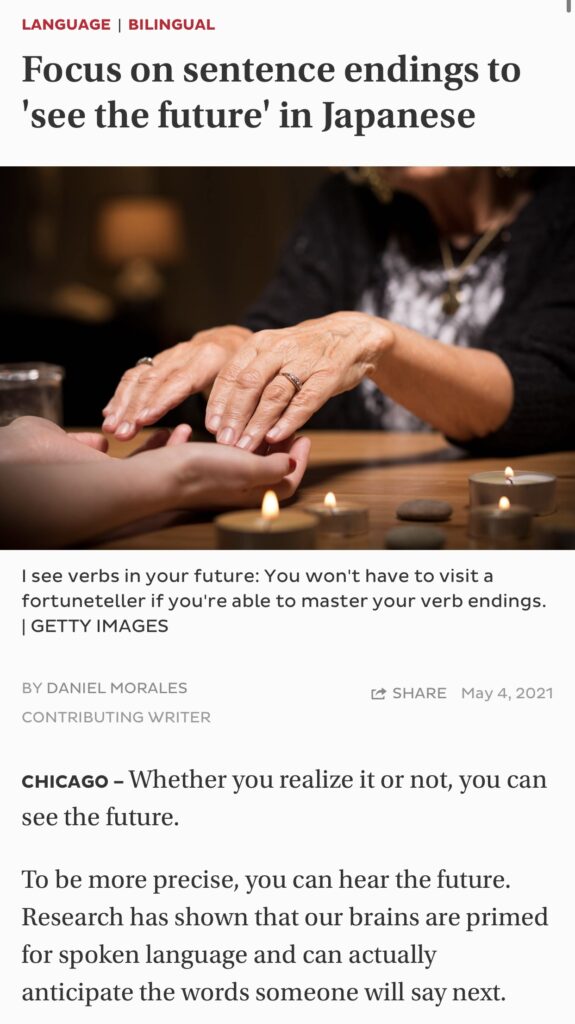I was in The Japan Times with one of my favorite Bilingual page articles I’ve ever written: “Focus on sentence endings to ‘see the future’ in Japanese.”

This is another product of my now daily NHK habit. I’ve been thinking a lot about listening, which is one of the most tenuous of all language skills. Sometimes the words just slip right through my ears like sand through fingers, and other times I’m able to clearly understand every sentence. It takes a certain level of attention—you can’t zone out—but try too hard and you’ll get caught up on each individual word and start to miss the overall sense of things.
I started to notice that I could anticipate sentence endings and that if I could kind of channel my attention to the content in the core of the sentence, it was easier for me to understand what was being said.
There are a couple of types of sentences that I wasn’t able to cover in the article. The first is the Xです (X desu) sentences, where X is a noun that helps convey expectations or beliefs. The two that are coming to mind now are 見通し (mitooshi, forecast/outlook) and 考え (kangae, belief).
Here’s an example that I have noted:
政府は、 感染を抑え込みたい考えです (Seifu wa kansen o osaekomitai kangae desu, The government would like to suppress the spread [of COVID-19]).
I have to believe that the core part of this sentence (感染を抑え込みたい) was longer in the actual example and that I simplified it as I prepared to write about it. You could use this construction to do a lot of additional work, specifically by noting how the government plans to prevent the spread. It would be easy enough to do this by adding a clause to the front of this “X.” It could get as long and detailed as you need it to be.
The other expression that I wasn’t able to mention was what I’ve previously called “appear-ative.” (Please forgive me for calling it a “tense” in the past; I will always carry this shame, lol.)
You can take these phrases I mentioned:
Xが焦点となります (shōten to narimasu, will be a focus)
Xが課題となります (kadai to narimasu, will be a topic)
And easily create a slightly different impression by turning them into this:
Xが焦点となりそうです (shōten to narisō desu, appears likely to be a focus)
Xが課題となりそうです (kadai to narisō desu, appears likely to be a topic)
Once you start listening for some of these frequently encountered sentence-ending phrases, you’ll find them everywhere. They can be as simple as a single noun and as complex as longer phrases like these:
影響を与える (eikyō o ataeru, will influence/effect)
影響を与えそうです (eikyō o ataesō desu, appears likely to influence/effect)
Have you noticed any others?

